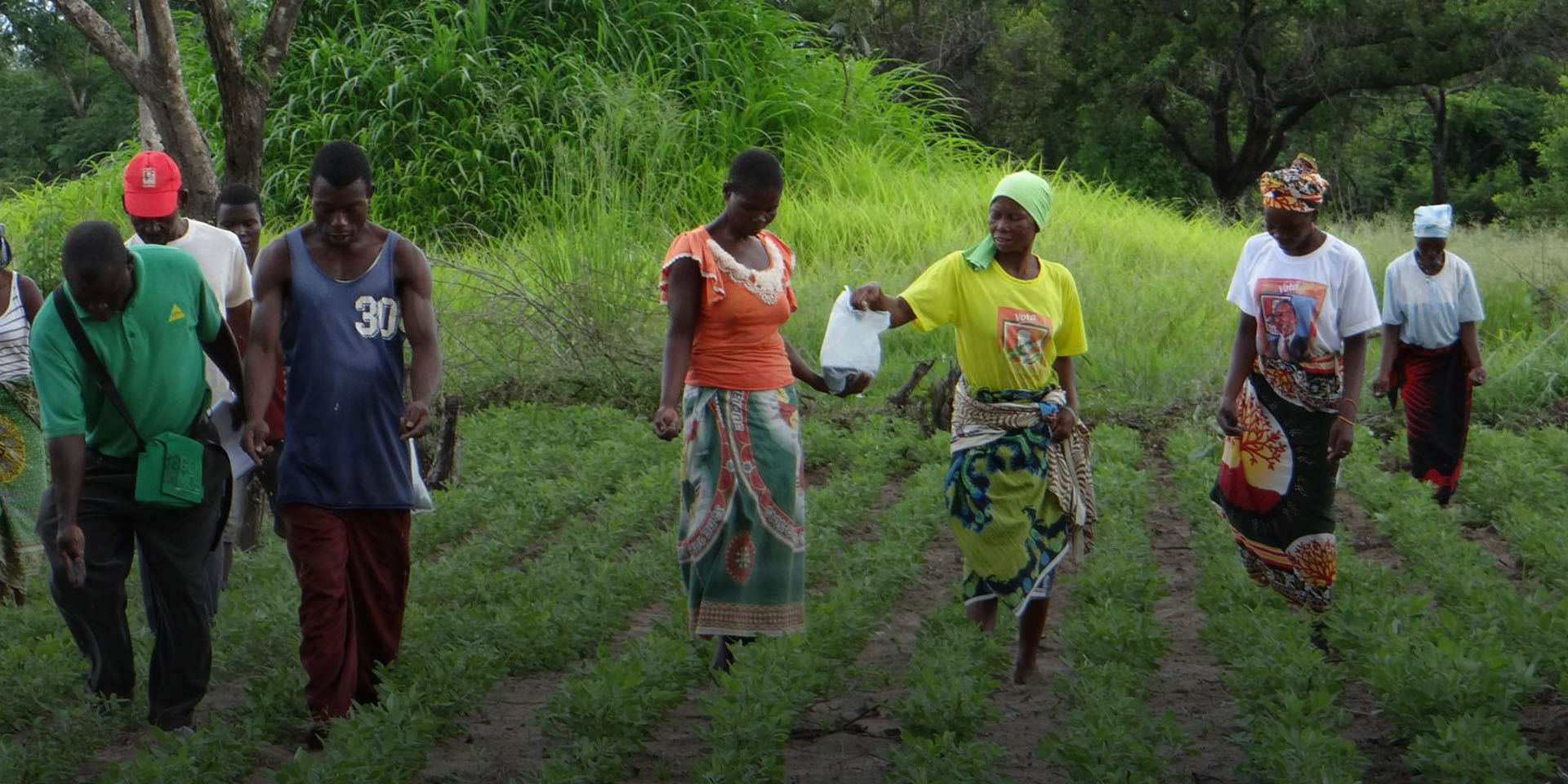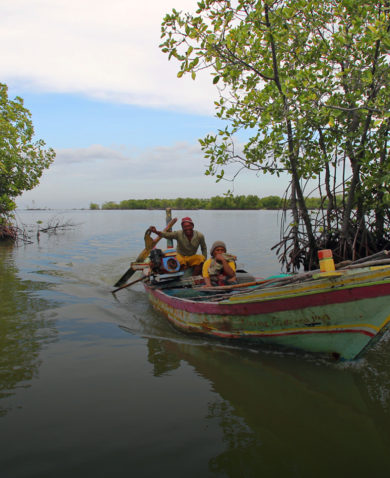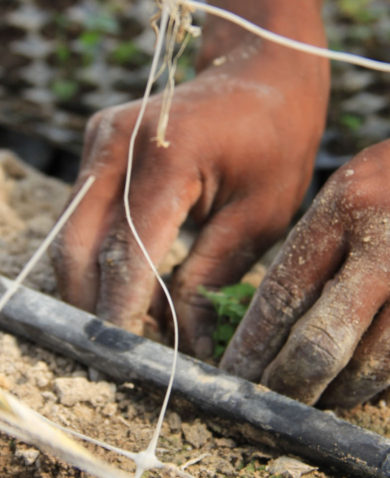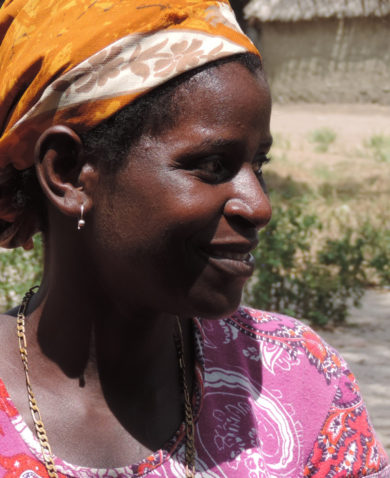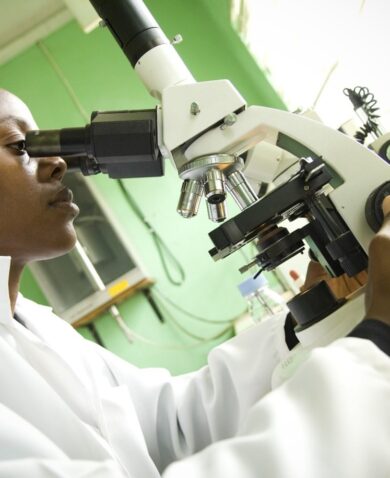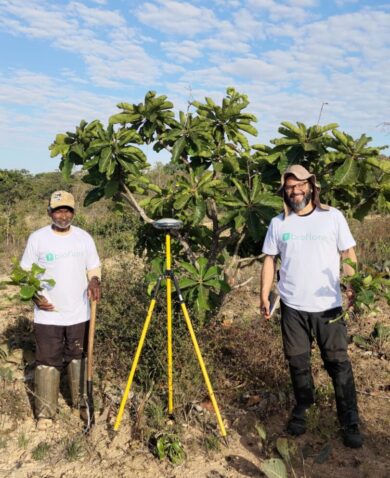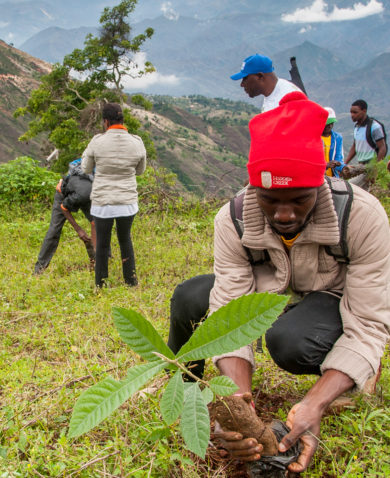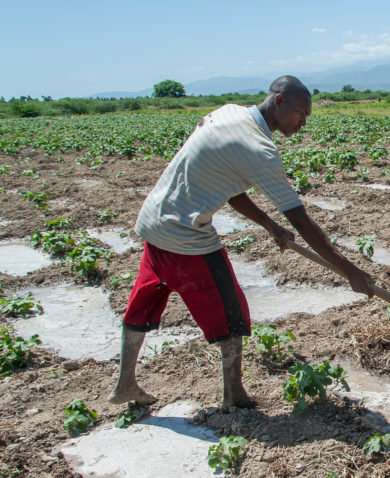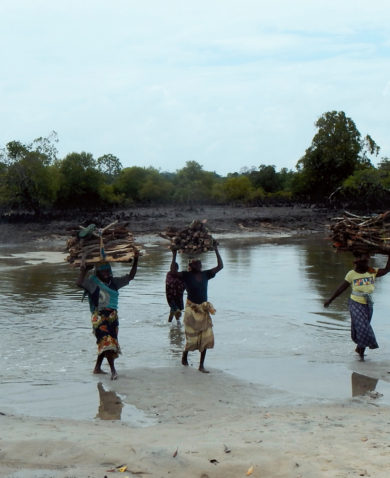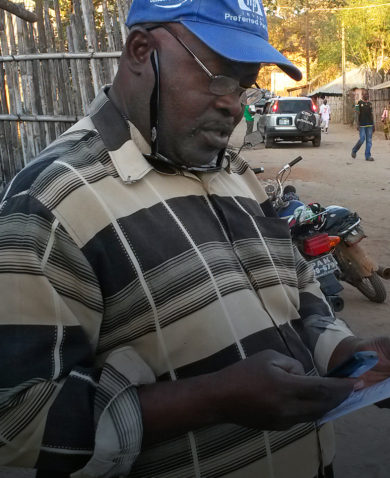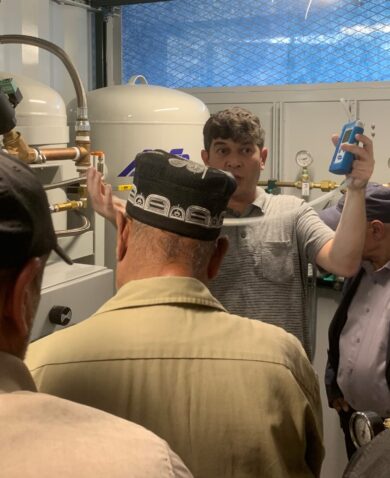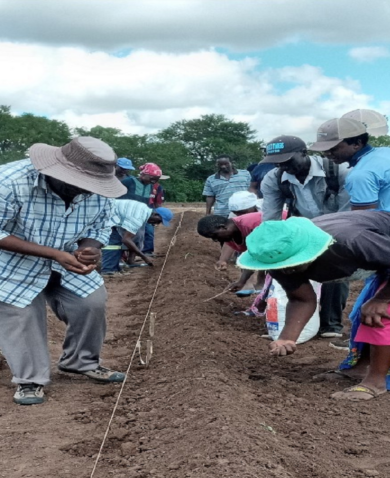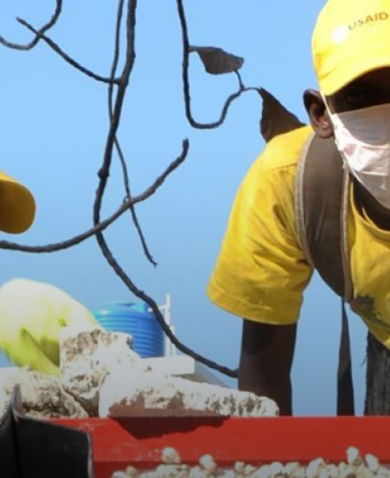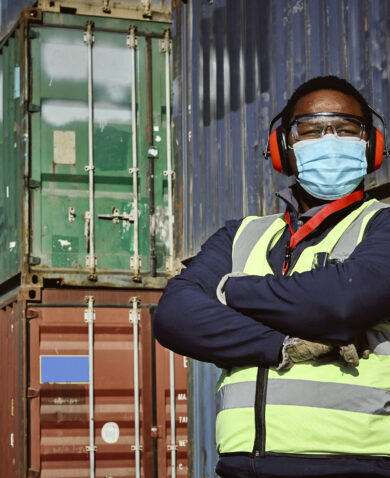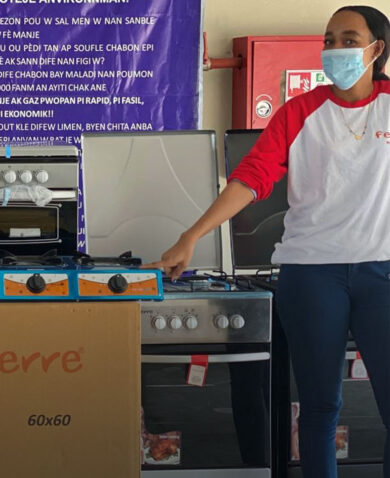Aflasafe Technology Transfer and Commercialization (ATTC) Project
Aflatoxin is a poison produced by a soil fungus that can infect crops, threatening food security, health, and trade in many developing countries; contaminating the food value chain; and costing hundreds of millions of dollars each year in export opportunities. In Africa specifically, aflatoxin causes stunting in children and an estimated 30 percent of all liver cancer cases.
The United States Department of Agriculture and International Institute of Tropical Agriculture (IITA) developed Aflasafe to combat aflatoxin contamination in staple cereal crops and groundnuts. With Chemonics (through December 2019) and Dalberg, IITA implemented the Aflasafe Technology Transfer and Commercialization (ATTC) Project with funding from the Bill and Melinda Gates Foundation and USAID. To improve food systems and public health, ATTC commercialized and delivered Aflasafe to the marketplaces of Nigeria, Senegal, the Gambia, Burkina Faso, Ghana, Kenya, and Tanzania. The project researched the potential for moving Aflasafe from a scientific to a commercial product; identified private sector investors; transferred the technology to selected investors; and supported commercialization so that Aflasafe manufacturing and distribution systems were economically viable, sustainable, and independent. By collaborating with private sector and government stakeholders, ATTC worked to improve food safety and increase the income of maize and groundnut smallholder farmers through Aflasafe use.

